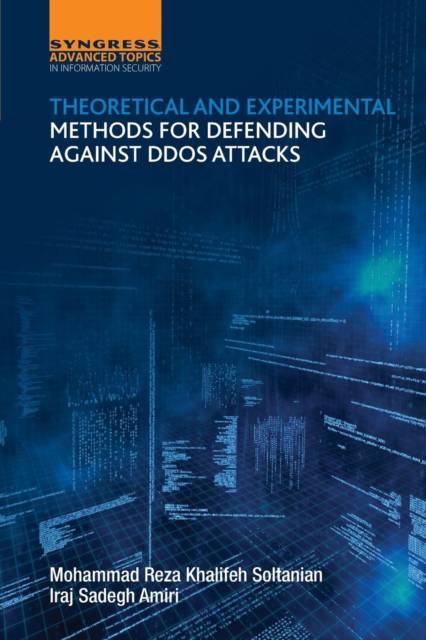
- Retrait gratuit dans votre magasin Club
- 7.000.000 titres dans notre catalogue
- Payer en toute sécurité
- Toujours un magasin près de chez vous
- Retrait gratuit dans votre magasin Club
- 7.000.0000 titres dans notre catalogue
- Payer en toute sécurité
- Toujours un magasin près de chez vous
Theoretical and Experimental Methods for Defending Against DDoS Attacks
Iraj Sadegh Amiri, Mohammad Reza Khalifeh SoltanianDescription
Denial of Service (DoS) attacks are a form of attack that seeks to make a network resource unavailable due to overloading the resource or machine with an overwhelming number of packets, thereby crashing or severely slowing the performance of the resource. Distributed Denial of Service (DDoS) is a large scale DoS attack which is distributed in the Internet. Every computer which has access to the Internet can behave as an attacker. Typically bandwidth depletion can be categorized as either a flood or an amplification attack. Flood attacks can be done by generating ICMP packets or UDP packets in which it can utilize stationary or random variable ports. Smurf and Fraggle attacks are used for amplification attacks. DDoS Smurf attacks are an example of an amplification attack where the attacker sends packets to a network amplifier with the return address spoofed to the victim's IP address. This book presents new research and methodologies along with a proposed algorithm for prevention of DoS attacks that has been written based on cryptographic concepts such as birthday attacks to estimate the rate of attacks generated and passed along the routers. Consequently, attackers would be identified and prohibited from sending spam traffic to the server which can cause DDoS attacks. Due to the prevalence of DoS attacks, there has been a lot of research conducted on how to detect them and prevent them. The authors of this short format title provide their research results on providing an effective solution to DoS attacks, including introduction of the new algorithm that can be implemented in order to deny DoS attacks.
Spécifications
Parties prenantes
- Auteur(s) :
- Editeur:
Contenu
- Nombre de pages :
- 74
- Langue:
- Anglais
Caractéristiques
- EAN:
- 9780128053911
- Date de parution :
- 16-11-15
- Format:
- Livre broché
- Format numérique:
- Trade paperback (VS)
- Dimensions :
- 150 mm x 224 mm
- Poids :
- 181 g

Les avis
Nous publions uniquement les avis qui respectent les conditions requises. Consultez nos conditions pour les avis.






